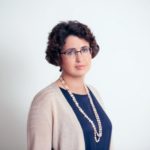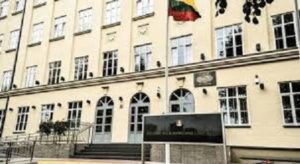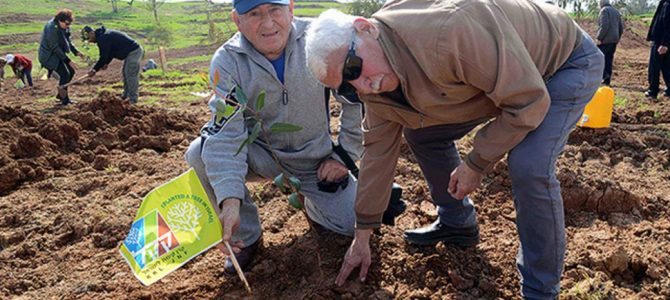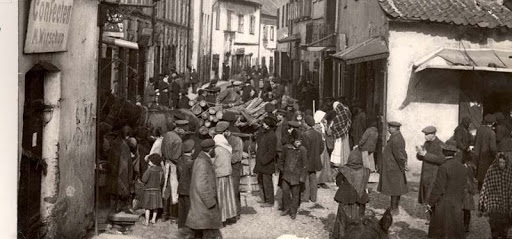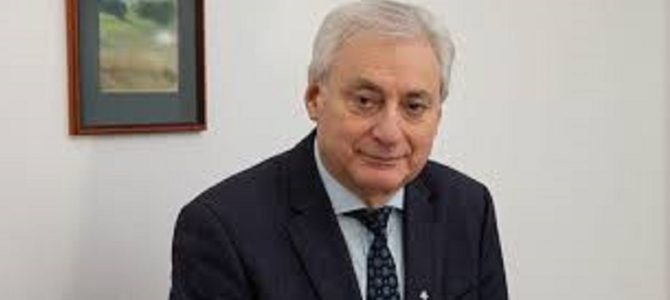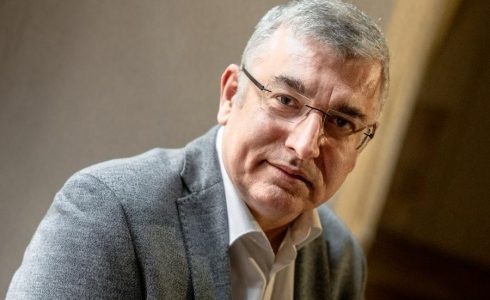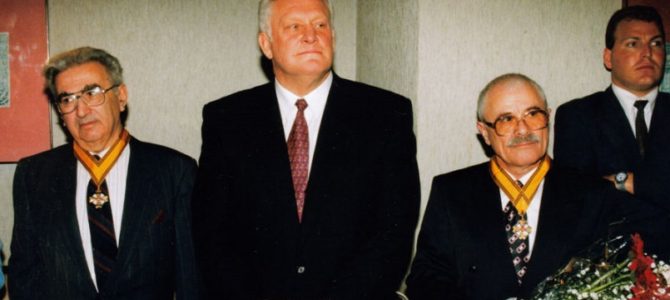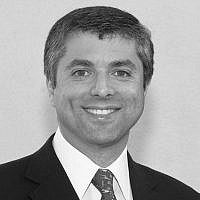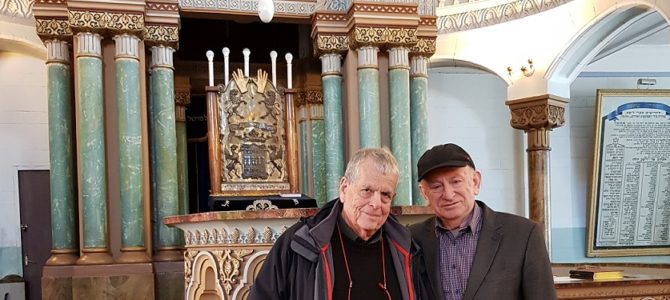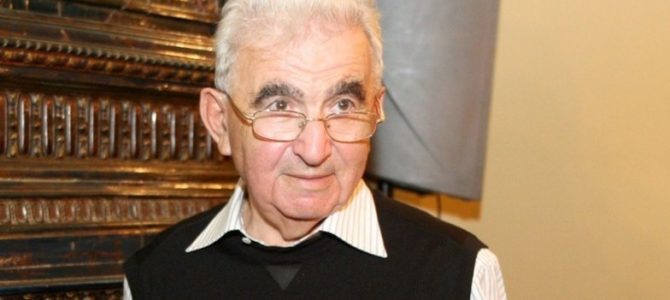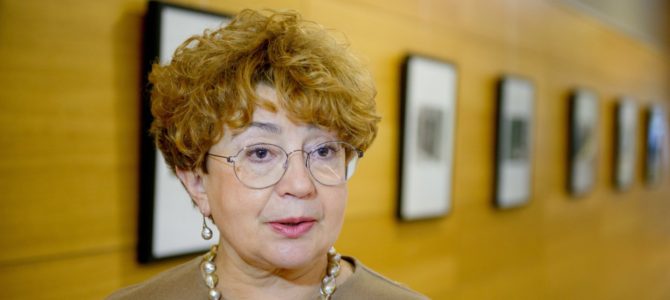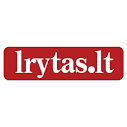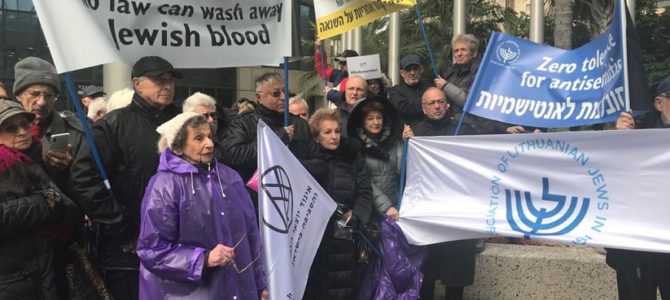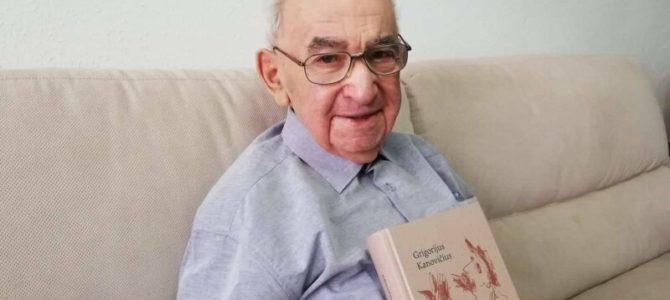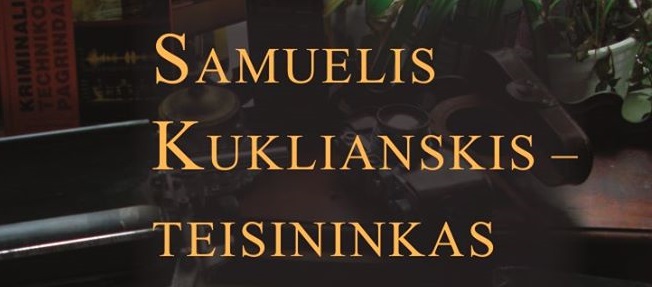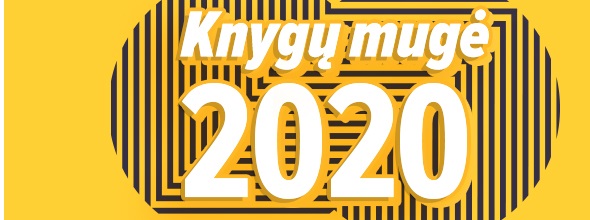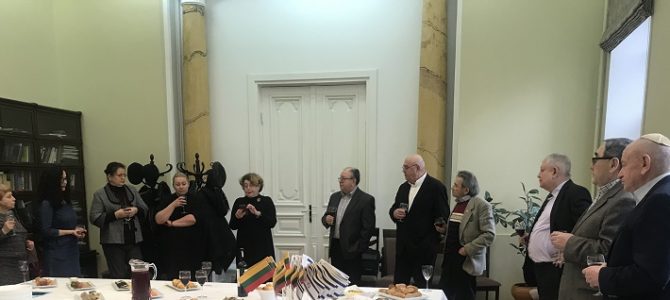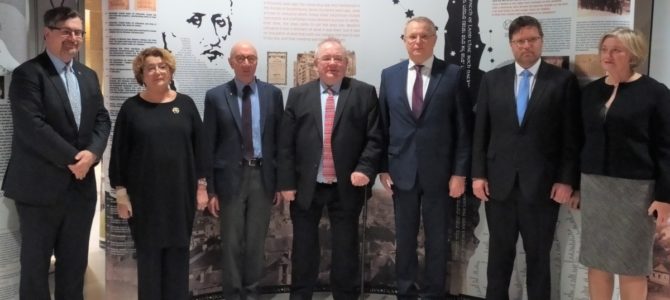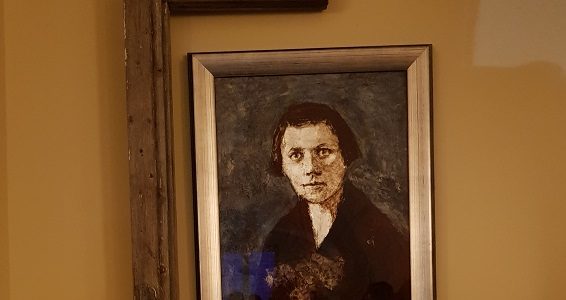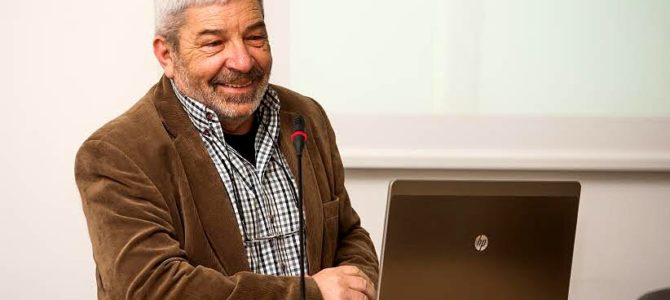by Sergejus Kanovičius
Once, long ago, I attended a Lithuanian school. Back then there were two Jews, or more accurately, a Jewish boy and a Jewish girl. The boy was in the grade next to her. Dark-skinned speaking without an accent, the Jewish boy always got into fights when others reminded him he was different. Different and therefore not as good. No one tried to break it up. There were always observers. Later they called themselves pals because they didn’t get into fights with him. They didn’t defend him, but they didn’t beat him, either. It’s much safer to stand to the side and keep quiet. That’s been proven historically. The Jewish girl didn’t get into fist fights. She was shy and had curly hair. Whenever someone called her žydelka [Jew-girl], which is now for some reason considered an endearing diminutive term, she used to walk away, sometimes wiping a tear. When I used to hear these “terms of endearment,” unlike the majority of the žydelkos, I had to get into a fight again.
There have always been more apologists for epithets such as žydelka, žydo išpera [Jew-spawn] and others and they have always been stronger. But my family taught me one thing: never to retreat from abuse, to oppose it. I would be lying if I said I had ever been the victor in some fist fight. The combatants were always greater in number and I lost. No matter what, though, they got theirs. Of the many wonderful teachers there were only a few who didn’t give out beatings, they found a pseudo-intellectual way of telling the whole class that this one is different and therefore is worthy of less respect. This kind of intellectual pedagogical encouragement to hate. Like the mark for dictation, when because of one comma the dark kid used to get four [out of ten] with a minus. Just because. So I wouldn’t forget I was different.
Many years later as Lithuania counts her fourth decade of independence, no one dare beat me. Fists have become unpopular. They beat through words. Sometimes rather beautiful ones. The world is free. But it is painful the Lithuanian National Defense Ministry’s magazine Karys [Soldier] has published the lie of a pseudo-historian about the local leader of anti-Semitic ideology (who knows whether another NATO member who sometimes guards our airspace, if the French Defense Ministry would try to tell their soldiers what a great diplomat and patriot Pétain was). Or insistently try to prove “Jew-girl” is a term of endearment (happy International Women’s Day, žydelkos!). Frida Vismant of Šeduva recalls that’s what they called her on the streets in 1940. “You just wait, žydelka padalka, Hitler will come and we’ll show you!” (Out of endearment, I guess, they told her she was a žydelka in the Šiauliai ghetto after they took her firstborn Rachmielis and beat him to death along with 600 child žydelkos).
